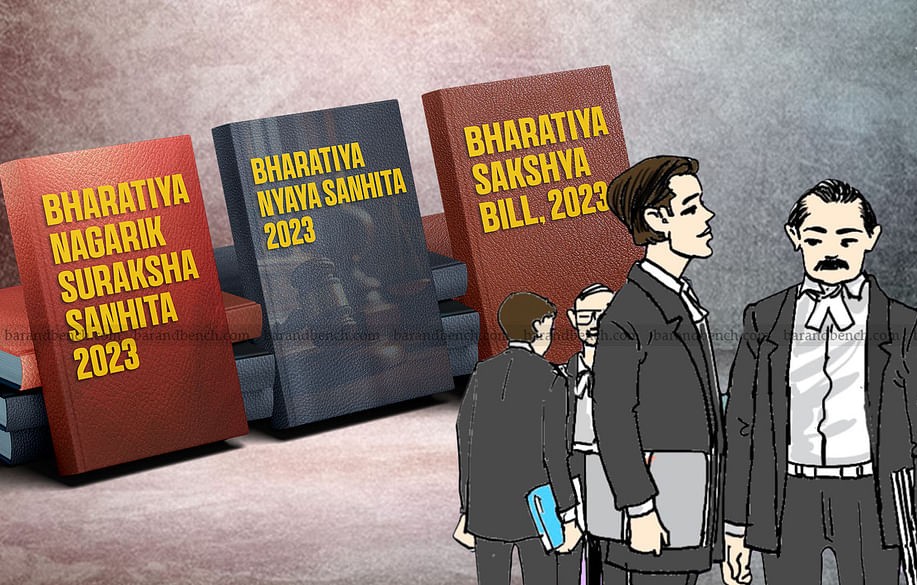To reform criminal justice of India and revamp rules of British era 3 new bills have been proposed by home minister Amit Shah. Indian penal code, criminal procedure code and Indian evidence act had been a written infrastructure for government of India for last 150 years which has been implemented during British period. But now a days Crime, nature of crime and way of doing crime has been changed a lot comparing to previous era during 18th century.
New bills for reforming justice
Home minister Amit Shah proposed a bill in rajyasabha replacing old bill. The new proposed bill are as follows
IPC– Bharatiya Nyaya sanhita Bill
CrPC– Bharatiya Nagarika suraksha Bill
Indian Evidence act – Bharatiya sakshya bill
Objectives for reforming criminal laws
Like a common perspective of every law, this law will also have focus on knowledge, uniformity and certainty. Knowledge is for awareness i.e in school and College, everybody should have got chance to get aware. So that ignorance of law will not acceptable. Uniformity and certainty is for maintaining it in all around country, at every corner of India.
Overview of laws of British Era
IPC -What constitutes a crime?
-What is punishment?
CrPC – defining arrest, investigation, bail, procedure
Evidence act – admissibility of evidence
– burden of proof
Laws of British Era: problems
During mid eighteenth century, after taking over the administration from East India company, British Government implemented various law including criminal laws by conducting 4 different law commission. First law commission held in 1833 by lord Thomas B Macaulay with other 3 members. Second commission done in 1853, 3rd in 1861 and 4th in 1879. Based on these laws even today’s justice are delivering as well as executing. Some of these laws are contract act, transfer of property and civil procedure code.
Home minister Amit Shah said while proposing these 3 new bills in loksabha that still there are more than 400 mentions of British Crown in these laws, shows that a colonial mindset even after 75 yrs of independence. Also said these are not gender neutral and complicated structure.
New criminal justice and changes
Sectional changes
- IPC had 576 sections , BSNB will have 356 sections, 175 modified, 22 deleted and 8 new provision.
- CrPC had 484 sections , BNSS will have 533 section, 9 new provisions, 10 sections changed and replaced with a new way.
- Evidence Act had 167 sections, BSB is proposed for 170 sections.
What’s New?
Gender neutral
In old laws, “outraging the modestly of a woman” can be alleged only against men only, but in new law all gender can be alleged.
Strict rules
Strict rules for early justice, chargesheet to be filed with in 90 days with extra extension of more 90 days, maximum 180 days.
Addition of new crimes
New crimes like snatching, mob lynching, fake promises for marriage, question paper leak, ATM theft, ponzi scam, terrorism, separatism, armed rebellion against government has added.
Community service
Community service like pretty offenses and defamation also added in new bills.
Controversies
Controversies on these laws also has been seen based on Name, language, why requirements of new laws etc.
Name and language
Bills name are in Hindi, but content inside are in English, this is first controversy.
What is requirement of new laws?
Old law could have been ammended with updated rules, but as there are lot of loopholes there in old laws , for a better structure new laws is being proposed.
Why new name?
Previous law was Bharatiya Danda Sanhita, new one is Bharatiya Nyaya sanhita Bill, which was claimed to be more justice focused than punishment.
Do we have infrastructure?
Implementation of new laws will require investment in schools, college, court and police station etc. Also digitisation, better forensic need to be maintained. So after implantation what step government will take, future will say.
Timeline overview of new bills
March 2020– Centre constituted panel to suggest reforms in criminal laws.
Feb 2022– Government invited public suggestions.
Aug 2023– Bills tabled
How bills will act?
Standing committee on home affairs will review first. They will change as per their recommendations.
Then both house will give its majority vote.
Then assigned by president.

